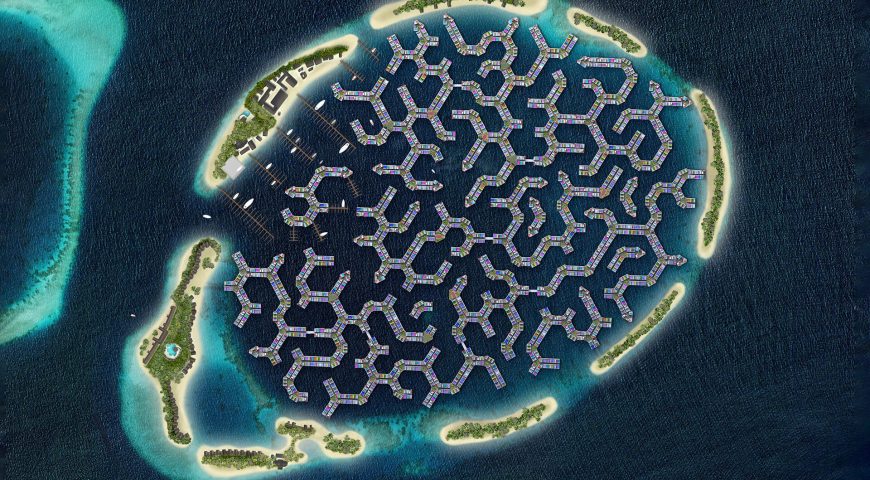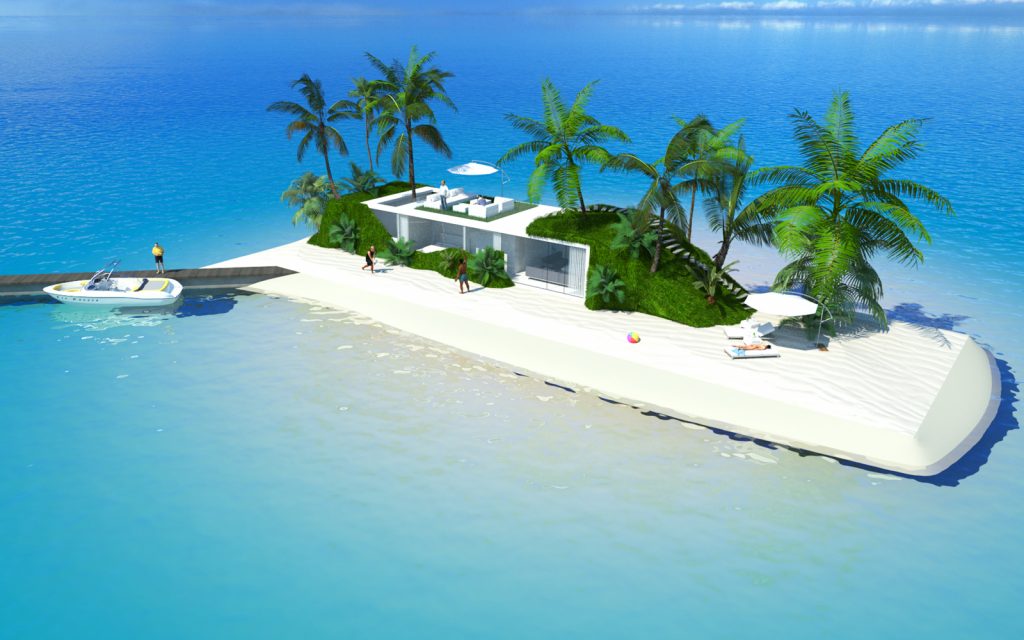
Is there any Floating City in Maldives | Dutch Docklands Maldives
To moderate the impacts of environmental change and rising sea levels, the atoll country of Maldives is building the first-of-its floating city in Maldives. Designed by Dutch Docklands Maldives(Floating City in Maldives), the development will feature large number of waterfront homes and services floating along a flexible, utilitarian grid across a 200-hectare lagoon. Development is due to start in 2022 and finished throughout the following five years.
The Maldives is one of 48 developing countries generally compromised by a global climate emergency participating in the Climate Vulnerable Forum (CVF), which was established in 2009. The CVF is composed of individuals from Africa, Asia, the Caribbean, Latin America and the Pacific, representing some 1.2 billion individuals around the world.
The United Nations has cautioned that oceans are under danger more than ever and emphasized the increasing risk of rising sea levels. Around 40% of the worldwide population live inside 100 kilometers of the coast. Atoll countries, like Maldives, Kiribati, Tuvalu and others, are much more in danger than other island-based nations. So-called king tides, which can wash over pieces of tenable land, and the storms that drive them are getting higher and more intense because of environmental change.
Dutch Docklands Maldives worked with urban planning and architecture firm Waterstudio, which is developing a floating city in the Netherlands, to make a water-based urban grid built to advance with the changing requirements of the country. The hexagon-shaped floating fragments are, to some degree, displayed on the distinctive geometry of local coral. These are associated with a ring of barrier islands, which go about as breakers beneath the water, in this way diminishing the effect of tidal pond waves and settling structures on a superficial level. The floating city(Dutch Docklands Maldives) doesn’t need any land recovery and subsequently insignificantly affects the nearby coral reefs.

Maldive authorities aims to make MFC as carbon unbiased and self-sufficient as could be expected. Freshwater storage will give drinking water to residents, while coasting solar blankets and farming fields will deal with their energy and food needs.
“This Maldives Floating City does not require any land reclamation, therefore has a minimal impact on the coral reefs,” explains Mohamed Nasheed, President of the Maldives from 2008- 2012, Speaker of Parliament and CVF Ambassador of Ambition. “What’s more, giant, new reefs will be grown to act as water breakers. Our adaption to climate change mustn’t destroy nature but work with it, as the Maldives Floating City proposes. In the Maldives, we cannot stop the waves, but we can rise with them.”

